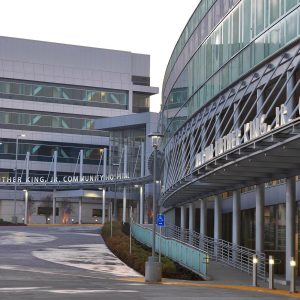The maintenance and restoration of internal combustion engines that utilize compression ignition is a critical aspect of the transportation, agriculture, and construction industries. These engines, known for their durability and efficiency, require specialized attention to ensure optimal performance and longevity. This involves diagnostics, component replacement, and precise adjustments.
Proper upkeep mitigates downtime, reduces operational costs, and extends the lifespan of essential equipment. The historical development of these engine systems has led to increasingly complex designs, necessitating specialized knowledge for effective maintenance. Regular attention ensures fuel efficiency and adherence to emissions regulations.
The following sections will delve into specific diagnostic procedures, common issues encountered, and the specialized techniques employed to address the intricate challenges of these powerful and widely used engines.
1. Diagnostics
The accurate assessment of a diesel engine’s condition is paramount to effective repair. Diagnostic procedures form the foundation upon which subsequent maintenance and restorative actions are based, ensuring efficient problem resolution and minimizing unnecessary interventions.
-
Electronic Control Unit (ECU) Analysis
Modern diesel engines rely heavily on ECUs to manage various functions. Diagnostic tools interface with the ECU to retrieve fault codes, sensor readings, and historical data. This information allows technicians to pinpoint electronic malfunctions, identify sensor failures, and assess the overall health of the engine management system. For example, a fault code indicating low fuel pressure can lead to the identification of a failing fuel pump or clogged fuel filter.
Suggested read: Local Motorcycle Repair Service Near You!
-
Mechanical System Assessment
While electronic diagnostics are crucial, a thorough examination of the mechanical components remains essential. This includes compression testing to evaluate cylinder health, leak-down tests to identify valve or piston ring issues, and visual inspections for signs of wear, damage, or leaks. For instance, low compression in one cylinder could indicate a damaged valve or worn piston rings, necessitating specific mechanical repairs.
-
Fuel System Evaluation
The fuel system is critical for diesel engine operation. Diagnostics involve assessing fuel pressure, injector performance, and fuel quality. This may include testing injector spray patterns, measuring fuel return rates, and analyzing fuel samples for contaminants. An improper spray pattern from an injector, for example, can lead to incomplete combustion, reduced power, and increased emissions.
-
Exhaust Emission Analysis
Analyzing exhaust emissions provides insights into combustion efficiency and potential problems within the engine. Diesel engines require monitoring for particulate matter, nitrogen oxides, and other pollutants. High levels of these substances can indicate issues with fuel combustion, air intake, or exhaust aftertreatment systems. This diagnostic step is especially important for compliance with environmental regulations.
The multifaceted nature of diesel engine diagnostics necessitates a comprehensive approach, combining electronic analysis, mechanical assessment, fuel system evaluation, and exhaust emission analysis. A skilled technician leverages these diagnostic tools and techniques to accurately identify the root cause of engine malfunctions, leading to targeted and effective repair strategies that ensure optimal performance, reduced downtime, and adherence to environmental standards.
2. Component Replacement
Component replacement constitutes an integral facet of effective engine restoration. The selective exchange of worn, damaged, or malfunctioning parts is often necessary to restore an engine to its optimal operational state. This process demands precision, technical expertise, and a thorough understanding of diesel engine mechanics.
-
Wear and Tear Remediation
Diesel engines, owing to their demanding operational environment, are subject to substantial wear and tear. Components such as pistons, rings, bearings, and valve train elements degrade over time, impacting engine performance and efficiency. Replacement of these worn parts is essential to restore compression, reduce oil consumption, and optimize combustion. For instance, worn piston rings can lead to decreased power output and increased blow-by, necessitating their replacement to reinstate engine efficiency.
-
Addressing Failure Modes
Mechanical failures, such as cracked cylinder heads, damaged crankshafts, or malfunctioning fuel injectors, necessitate component replacement. These failures can result from fatigue, stress, or external factors. Replacing these compromised components is critical to prevent catastrophic engine damage and ensure safe operation. A cracked cylinder head, for example, can lead to coolant leaks, overheating, and engine failure, requiring immediate replacement.
-
Enhancing Performance and Reliability
Component replacement is not solely limited to addressing failures; it can also be employed to enhance engine performance and reliability. Upgrading to higher-quality or performance-oriented components can improve power output, fuel efficiency, and engine longevity. For instance, replacing standard fuel injectors with high-performance units can enhance fuel atomization, resulting in improved combustion and increased horsepower.
-
Maintaining Emission Standards
Suggested read: Chain Link Services: Everything You Need to Know About Professional Chain Link Fencing Solutions
Diesel engines are subject to stringent emission regulations. Components related to emission control, such as diesel particulate filters (DPFs), exhaust gas recirculation (EGR) valves, and catalytic converters, require periodic replacement to maintain compliance. These components degrade over time, reducing their effectiveness in filtering pollutants. Replacing these components ensures that the engine continues to meet environmental standards.
The aforementioned aspects underscore the significance of component replacement in upholding the operational integrity and regulatory compliance of diesel engines. Executing component replacements with precision, utilizing high-quality parts, and adhering to recommended maintenance schedules are critical for ensuring the long-term reliability and performance of these engines.
3. Fuel systems
Effective “diesel engine repair service” is inextricably linked to the operational integrity of fuel systems. The fuel system’s role is to deliver precisely metered and atomized fuel to the combustion chamber at the correct pressure and timing. Any deviation from these parameters directly impacts engine performance, efficiency, and emissions. For example, a clogged fuel filter restricts fuel flow, leading to reduced power output and potential engine stalling. Similarly, malfunctioning fuel injectors can cause uneven combustion, resulting in increased fuel consumption and elevated exhaust emissions.
Diagnostic procedures addressing fuel system issues are paramount. Pressure testing, flow rate analysis, and injector spray pattern evaluation are essential for identifying malfunctioning components. Repair strategies may include cleaning or replacing fuel injectors, fuel pumps, or high-pressure lines. The complexity of modern common rail systems requires specialized tools and training to diagnose and rectify faults accurately. Ignoring or improperly addressing fuel system problems can lead to progressive engine damage, significantly increasing long-term repair costs. For instance, operating an engine with a faulty high-pressure fuel pump can lead to premature injector failure and potential damage to the engine’s internal components.
The intricate nature of fuel delivery systems in modern diesel engines necessitates that technicians performing “diesel engine repair service” possess a comprehensive understanding of fuel system operation and diagnostic methodologies. A failure to properly diagnose and repair fuel system issues can result in suboptimal engine performance, increased fuel consumption, elevated emissions, and potential engine damage. Therefore, expertise in fuel system maintenance and repair is critical for ensuring the reliable and efficient operation of diesel engines.
4. Engine Overhaul
Engine overhaul represents a comprehensive form of diesel engine restoration, extending beyond routine maintenance or component replacement. It addresses the cumulative effects of wear, prolonged use, or catastrophic failure. As such, engine overhaul constitutes a critical subset of the broader “diesel engine repair service” spectrum, typically reserved for situations where the engine’s overall performance has significantly degraded or when major internal components have failed. The decision to undertake an engine overhaul is often driven by factors such as consistently low power output, excessive oil consumption, significant mechanical noise, or a history of recurring engine malfunctions that cannot be resolved through less extensive repairs. For example, a diesel engine in a heavy-duty truck, after hundreds of thousands of miles, may exhibit reduced compression across multiple cylinders. This would likely warrant an overhaul rather than piecemeal repairs.
The process of an engine overhaul involves disassembling the engine to its bare components, thoroughly inspecting each part for wear, damage, or deviations from original specifications, and then reconditioning or replacing parts as needed. This may include machining cylinder heads, reboring cylinders, replacing pistons, bearings, valves, and other critical engine components. An engine overhaul is not merely a replacement of parts; it necessitates precise measurements, meticulous assembly, and adherence to manufacturer specifications to ensure the rebuilt engine meets or exceeds original performance standards. A successful engine overhaul requires specialized tools, equipment, and a high level of technical expertise. Failure to adhere to proper procedures can result in premature engine failure or suboptimal performance.
In conclusion, engine overhaul is an intensive and highly skilled intervention within “diesel engine repair service,” reserved for cases where less comprehensive repairs are insufficient to restore engine performance and reliability. The decision to undertake an engine overhaul represents a significant investment, and the selection of a qualified and experienced service provider is crucial for achieving a successful outcome and maximizing the lifespan of the engine. While challenging, a properly executed overhaul can extend the useful life of a diesel engine and avoid the substantial cost of complete engine replacement.
5. Preventive maintenance
Preventive maintenance is an essential strategy for mitigating the need for extensive diesel engine repair services. By implementing proactive measures and adhering to scheduled maintenance routines, the likelihood of significant engine failures and costly repairs is substantially reduced. This approach focuses on identifying and addressing potential problems before they escalate into major issues.
-
Scheduled Inspections and Fluid Analysis
Regularly scheduled inspections form a cornerstone of preventive maintenance. These inspections involve a comprehensive examination of critical engine components to identify signs of wear, leaks, or other potential issues. Furthermore, routine fluid analysis, including oil and coolant samples, provides valuable insights into the engine’s internal condition. For example, analyzing engine oil for the presence of metallic particles can indicate bearing wear, allowing for early intervention and preventing more extensive engine damage.
-
Component Replacements Based on Time or Usage
Certain diesel engine components have a finite lifespan and require replacement based on either time elapsed or operational hours. These components typically include filters (fuel, oil, air), belts, hoses, and certain sensors. Replacing these items according to the manufacturer’s recommendations prevents them from failing unexpectedly and potentially causing collateral damage to other engine components. For example, replacing a worn serpentine belt prevents it from snapping, which can lead to overheating and damage to the engine’s cooling system.
-
System Calibration and Adjustment
Preventive maintenance also encompasses calibrating and adjusting engine systems to ensure optimal performance and efficiency. This may include adjusting valve lash, calibrating fuel injectors, and optimizing engine timing. Proper calibration prevents engine misfires, reduces fuel consumption, and minimizes exhaust emissions. For instance, accurately calibrating fuel injectors ensures proper fuel atomization, leading to more complete combustion and reduced particulate matter emissions.
-
Early Detection and Correction of Minor Issues
Suggested read: Integrated Service Solutions: Transforming Business Operations Through Unified Management
A proactive preventive maintenance program includes identifying and correcting minor issues before they escalate into major problems. This requires vigilance and attention to detail. For example, addressing a small coolant leak promptly prevents overheating and potential engine damage. Similarly, tightening loose connections or repairing chafed wiring prevents electrical malfunctions and potential engine downtime.
In conclusion, a well-structured preventive maintenance program is an investment in the long-term health and reliability of diesel engines. By proactively addressing potential issues, the need for extensive “diesel engine repair service” is minimized, resulting in reduced operational costs, increased equipment uptime, and extended engine lifespan. This proactive approach not only saves money but also contributes to environmental sustainability by optimizing engine efficiency and reducing emissions.
6. Performance tuning
Performance tuning, in the context of diesel engines, represents a spectrum of modifications and adjustments designed to optimize engine output beyond its original factory specifications. While seemingly distinct from corrective “diesel engine repair service,” performance tuning often intersects with and, at times, necessitates repair work. Modifications such as increased fuel delivery, turbocharger upgrades, or alterations to the engine control unit (ECU) can reveal underlying weaknesses or exacerbate existing problems within the engine. For example, increasing boost pressure on a turbocharged engine may expose a pre-existing weakness in the cylinder head gasket, leading to coolant leaks and a subsequent need for gasket replacement. This highlights how tuning can inadvertently initiate or uncover repair needs.
Furthermore, the pursuit of enhanced performance frequently requires addressing the limitations of original equipment manufacturer (OEM) components. Upgrading to heavy-duty components, such as strengthened connecting rods or performance-optimized fuel injectors, becomes essential to reliably handle the increased power and torque output. In this scenario, “diesel engine repair service” transitions into a proactive measure, preventing potential component failure under increased stress. The integration of aftermarket performance parts, while intended to enhance engine capabilities, necessitates careful consideration of the overall system’s integrity. The proper selection and installation of these parts require expertise in both performance tuning and engine repair techniques. Ignoring these considerations can result in diminished reliability and potential engine damage. For instance, installing larger fuel injectors without addressing the limitations of the fuel pump can result in fuel starvation at high engine speeds, leading to performance degradation and potential engine damage.
In summary, the relationship between performance tuning and “diesel engine repair service” is symbiotic. While tuning aims to enhance engine output, it simultaneously necessitates a thorough understanding of engine mechanics and the potential need for repairs or upgrades to ensure reliability. A successful performance tuning endeavor requires a holistic approach, considering both the desired performance gains and the potential impact on engine longevity and component integrity. The expertise of a skilled technician, capable of both tuning and repair, is crucial for navigating this complex interplay and achieving optimal results without compromising engine reliability.
Frequently Asked Questions Regarding Diesel Engine Repair Service
The following questions address common concerns and misconceptions surrounding the maintenance and restoration of diesel engines, providing clarity on key aspects of the process.
Question 1: What factors determine the cost of diesel engine repair?
The expense associated with restoring a diesel engine depends on several variables, including the nature and severity of the damage, the make and model of the engine, the availability of replacement parts, and the labor rates of the service provider. Major overhauls involving extensive component replacement will naturally incur higher costs compared to minor repairs.
Question 2: How can the lifespan of a diesel engine be maximized?
Maximizing engine longevity requires adherence to a strict preventive maintenance schedule, including regular oil changes, filter replacements, and inspections. Promptly addressing any signs of engine malfunction is crucial. Furthermore, operating the engine within its designed parameters and avoiding excessive loads or speeds will contribute to its extended lifespan.
Question 3: What are the common indicators of a failing diesel engine?
Common indicators of potential engine problems include decreased power output, increased fuel consumption, excessive oil consumption, unusual engine noises, difficulty starting, and the presence of smoke in the exhaust. Any of these symptoms warrant a professional inspection to determine the underlying cause.
Suggested read: Salesforce Managed Services: Transform Your CRM Investment into Business Growth
Question 4: Is it more cost-effective to repair or replace a damaged diesel engine?
The decision to repair or replace depends on the extent of the damage and the overall condition of the engine. Repairing a relatively new engine with localized damage may be more cost-effective. However, for older engines with widespread wear or extensive damage, replacement may be the more economical option in the long run.
Question 5: What is the significance of using OEM (Original Equipment Manufacturer) parts in diesel engine repair?
The use of OEM parts is generally recommended to ensure compatibility and maintain the engine’s original performance characteristics. While aftermarket parts may be available at a lower cost, their quality and reliability can vary significantly. Using OEM parts provides assurance of proper fit and function, contributing to the engine’s long-term reliability.
Question 6: How frequently should a diesel engine undergo professional maintenance?
The frequency of professional maintenance depends on the engine’s operating conditions and the manufacturer’s recommendations. However, as a general guideline, diesel engines should undergo a comprehensive inspection and service at least annually or after a specified number of operating hours. More frequent maintenance may be required for engines operating under harsh conditions.
Understanding these frequently asked questions can aid in making informed decisions regarding diesel engine care and restoration. Proactive maintenance and timely intervention are essential for preserving engine performance and minimizing downtime.
The subsequent section will explore the future trends and emerging technologies impacting the field of diesel engine maintenance and repair.
Diesel Engine Maintenance and Longevity Tips
Adhering to consistent practices significantly extends diesel engine lifespan and minimizes the requirement for extensive “diesel engine repair service”. Implementing these guidelines promotes operational reliability and reduces downtime.
Tip 1: Implement Regular Oil Analysis. Conducting routine oil analysis provides insights into engine wear and potential contaminants. Identifying abnormal levels of metals or other debris facilitates proactive maintenance and prevents catastrophic failures.
Tip 2: Maintain the Cooling System. The cooling system regulates engine temperature. Regularly flushing the coolant and inspecting hoses, belts, and the radiator prevent overheating, a primary cause of engine damage. Use a coolant that meets manufacturer specifications.
Tip 3: Ensure Proper Fuel Filtration. Diesel fuel can contain contaminants that damage fuel injectors and pumps. Install and maintain high-quality fuel filters, replacing them according to the recommended schedule. Water separators are beneficial to remove moisture from the fuel system.
Suggested read: Professional Gutter Inspection Services: Protect Your Home from Water Damage in 2025
Tip 4: Monitor Exhaust Emissions. Excessive smoke or unusual exhaust odors can indicate underlying engine problems. Address these issues promptly to prevent further damage and maintain compliance with environmental regulations. Diagnostic testing can pinpoint the source of the problem.
Tip 5: Perform Regular Valve Adjustments. Maintaining proper valve clearance ensures efficient combustion and prevents valve damage. Adjust valves according to the manufacturer’s specified intervals, as improper valve clearance can lead to reduced power and premature wear.
Tip 6: Avoid Prolonged Idling. Excessive idling contributes to carbon buildup and fuel dilution in the oil. Minimize idling time whenever possible, and consider using auxiliary power units (APUs) for prolonged stationary operations.
These guidelines represent crucial elements of proactive care, minimizing the need for “diesel engine repair service”. Consistently applying these practices optimizes engine performance, reduces operational costs, and extends engine lifespan.
The subsequent section will discuss emerging technologies shaping the future of diesel engine maintenance.
Conclusion
The preceding discussion has illuminated the multifaceted aspects of “diesel engine repair service,” encompassing diagnostics, component replacement, fuel system maintenance, engine overhaul, preventive measures, and performance tuning. The effective execution of these services requires specialized knowledge, advanced tooling, and adherence to rigorous standards.
The continued reliance on diesel engines across various industries underscores the critical importance of skilled technicians and comprehensive repair capabilities. Investing in preventative maintenance, utilizing quality components, and seeking timely professional assistance are paramount for ensuring the sustained performance and longevity of these essential power sources. The future of “diesel engine repair service” lies in embracing technological advancements and adapting to evolving industry demands.





